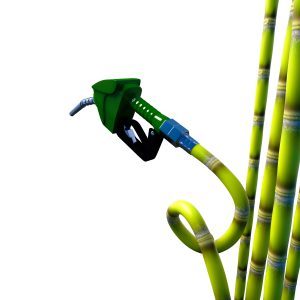While there are various uses of sugarcane other than making white sugar, one of the highest potential ones is ethanol. Previously this space discussed how the import bill can be brought down through blending of ethanol with fuel (read “Ethanol’s potential as bio-fuel” published on October 16, 2018). While efforts in this regard will accrue returns in the long term, a lot can be done in the short and medium term to make Pakistan’s low-value-high-water-consumption crop of sugar cane more profitable.
A USDA paper estimates that one ton of sugarcane can yield 19.6 gallons of ethanol. MY 2018/19 forecasts for sugarcane production in Pakistan are at 72 million tons of sugarcane which roughly equates to 5.2 billion litres of ethanol. On average the price per litre of ethanol fluctuates around $1.3 whereas the Pakistan’s export price per kg of sugar in FY18 was $0.3 (as per PBS data).
If the crop of sugarcane is to be converted to ethanol and exported, Pakistan stands to make nearly $7 billion in ethanol exports. This is an entirely unrealistic figure given domestic sugar consumption and limitations in Pakistan’s capacity to convert sugarcane into ethanol but it gives an idea about the potential for exports. FY18 was a record year for ethanol exports which were nearly $400 million. Despite increase in ethanol exports in recent years, actual numbers are only a fraction of total potential
In MY 2017/18, India’s ethanol production was estimated to be 2.6 billion litres, the highest in the last decade as per a recent statement by USDA.
This has come about in part through government support that has provided interest subsidy for ethanol production plants.
Since India is working towards blending ethanol with petrol and diesel, ethanol production is consumed domestically though demand is as high as 5 billion litres with the deficit being met through imports.
Thus there is a readymade market for Pakistan’s ethanol next door. Though high tariffs are imposed on India’s ethanol imports (129 percent on average as per ITC), they are uniform across all countries. While the bulk of India’s imports are sourced for US, Pakistan does have a toehold in the market. Ethanol is also covered by the GSP+ and some of the top ethanol importing countries reside in the EU. Pakistan has the raw material to produce ethanol and markets available for it. What is required is the will power to convert the manufacturing of surplus sugar to ethanol and making the required investments for it. Even realizing 10 percent of potential ethanol exports could give a boost of nearly $1 billion.












